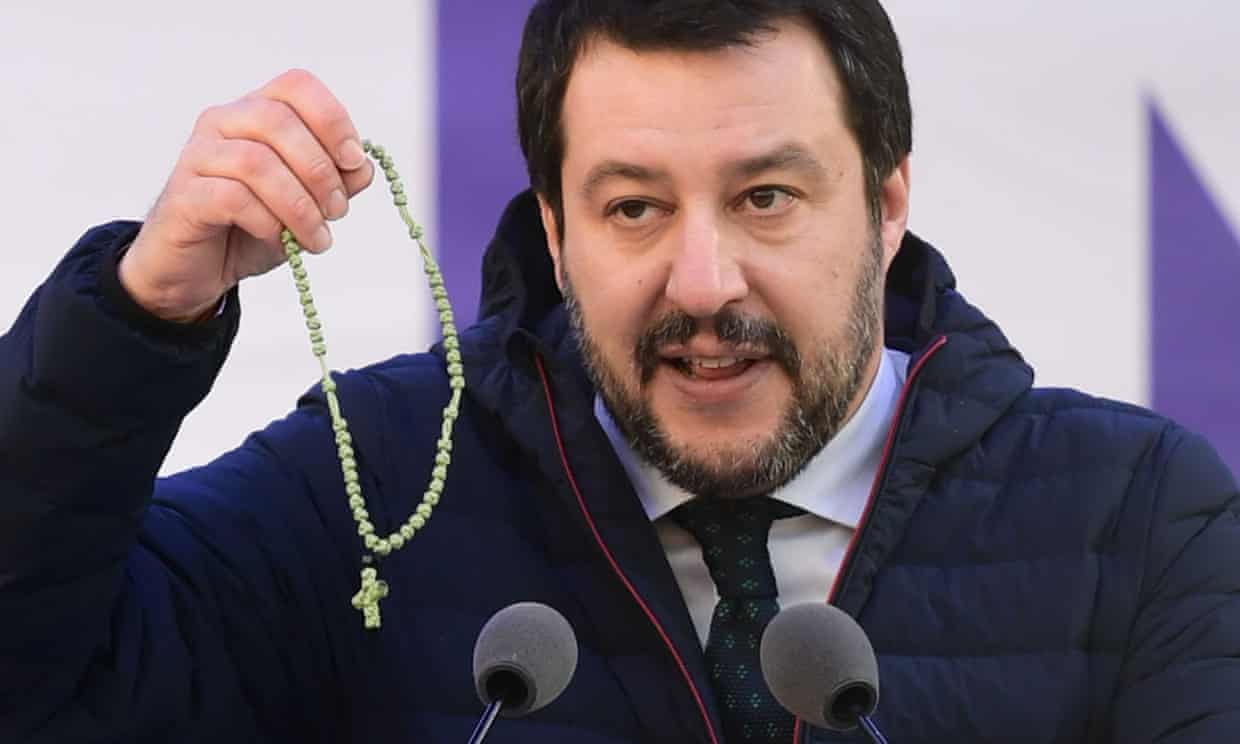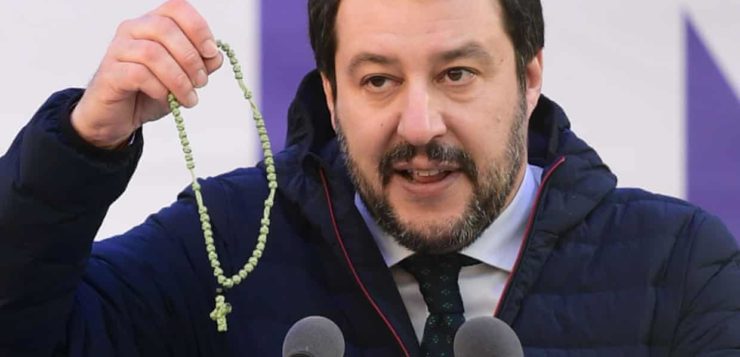RECENT MONTHS have seen a rise in homophobic attacks on the LGBT community in Italy. Gay rights organizations associate these hate crimes with the harsh political climate. Matteo Salvini, the former interior minister who rose to power on a campaign of anti-immigration, far right nationalism and xenophobia is especially under scrutiny. Opponents and activists alike say the leader of the extreme right-wing party The League has emboldened perpetrators of these hate crimes with his xenophobic rhetoric and discourse.
Arcigay, Italy’s oldest and largest national gay organization, which monitors the press for homophobic and transphobic attacks, estimated a surge in such hate crimes over the past year, when 187 attacks occurred for an increase of nearly 33 percent. Other organizations tend to support this conclusion. Gay Help Line received some 20,000 phone calls this year, and 3,200 came from minors. The organization reported that the percentage of parents who do not accept their children’s homosexuality is increasing. More than one LGBT person is a victim of family violence per day.

Giarratano and Cathy La Torre cofounded Gay Lex, an association focused on providing legal services to LGBT people. For several years they have tried unsuccessfully to introduce a bill calling for punishing homophobic and transphobic hate crimes and hate speech. This protection is more urgent today than ever, because politics seem “to play a role in the increase in recorded hate crimes in recent years,” Giarratano says.
Consider what happened recently in Bibbiano, a city run by the Democratic Party (Italy’s social democrats), when eighteen people were arrested for allegedly brainwashing vulnerable children into thinking their parents had abused them so they could then be sold to foster parents. Following the arrest, the local branch of Brothers of Italy, a “post-fascist” party, blamed “LGBT ideology” for creating a criminal foster care system. The group then asked to register all homosexual foster parents. Polarizing society on gay rights has been a crucial part of their political strategy in order to obstruct regional hate crimes bills. Among its many obstacles, the bill faces a Brothers of Italy amendment “to exclude from the application of the homotransphobia hate crimes law all the acts related to pedophilia, necrophilia, zoophilia.”
“It’s alarming but it’s not new. Racism and social exclusion are related to right-wing ideology” says Piergiorgio Paterlini, a noted Italian LGBT writer and journalist. “We thought we lived in a de-ideologized world. We woke up in hugely polarized societies where cyclically old ideas re-emerge in new ‘habits.’”
Even if the Brothers of Italy is a small party, it is one of the partners in the right-wing coalition led by Matteo Salvini’s League. Since he became interior minister, essentially thanks to a virulent anti-immigration agenda, Salvini repeated that only the “natural family founded on the union between a man and a woman” should exist, and that he will use his power to preserve it.
It is this political position that led him to endorse and to address the World Congress of Families. Last March’s event in Verona brought together far-right parties, anti-LGBT groups, anti-feminist groups, and pro-life groups. Lorenzo Fontana was even more assertive, declaring that, as minister, gay families “don’t exist” legally in the country, even if the 2016 bill recognizes civil unions as legal. He is a strong supporter of the Russian social model and thinks that the combination of mass migration and gay rights weakens the traditional community.
Although a recent political crisis pulled Salvini out of the government, his grip on the Italian Right is still strong. Now, as the leader of the opposition, the former interior minister is pulling the once moderate center-right coalition to more and more far-right positions, above all on societal issues.
Migrants and LGBT people are strongly intertwined in the nationalist League’s view. “That’s not so strange,” says Elena Pavan, professor of gender and media at the University of Trento. “Lgbti people asking for marriage, instead of living their homosexuality in a private and hidden form; women requiring welfare that allows them to work, instead of playing the role of mother at home; migrants trying to reach a better life, trespassing the borders.”
On gay rights, the League is endorsing a view that appealed to people throughout the past few decades. Much of this is also owed to their stance on the so-called “war on gender.” Since the 90’s, the Vatican has engaged in a political and cultural struggle to impose a controversial label (“gender ideology”) on gender studies that, in the Vatican’s opinion, would aim at the destruction of the family and the “natural order.” This traditionalist Catholic viewpoint worked nicely with the League’s anti-immigrant agenda, appealing to the same basic constituency. And it worked well with Salvini’s political strategy of “no enemies to the right” (which brought Salvini to “flirt” with Casa Pound, a neo-fascist political party).
Social media have served to boost these ideas. ”The social media content multiplication capacity” is helping national populist parties, says Paterlini. While it is still unclear if the new left-wing coalition government will fix the lack of a homotransphobia bill, Salvini’s approach to societal issues seems to be increasingly effective on Italian society and clearly dominates the Italian Right.
Marco Michieli is an Italian political analyst living in Paris and covering French politics for Ytalimagazine.




